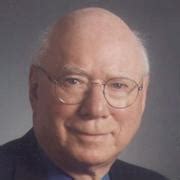Top 11 Quotes & Sayings by Donald O. Clifton
Explore popular quotes and sayings by an American psychologist Donald O. Clifton.
Last updated on April 21, 2025.
There is one sure way to identify your greatest potential for strength: Step back and watch yourself for a while. Try an activity and see how quickly you pick it up, how quickly you skip steps in the learning and add twists and kinks you haven't been taught yet. See whether you become absorbed in the activity to such an extent that you lose track of time. If none of these has happened after a couple of months, try another activity and watch-and another. Over time your dominant talents will reveal themselves, and you can start to refine them into a powerful strength.
From this point of view, to avoid your strengths and to focus on your weaknesses isn't a sign of diligent humility. It is almost irresponsible. By contrast the most responsible, the most challenging, and, in the sense of being true to yourself, the most honorable thing to do is face up to the strength potential inherent in your talents and then find ways to realize it.






















